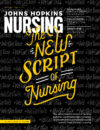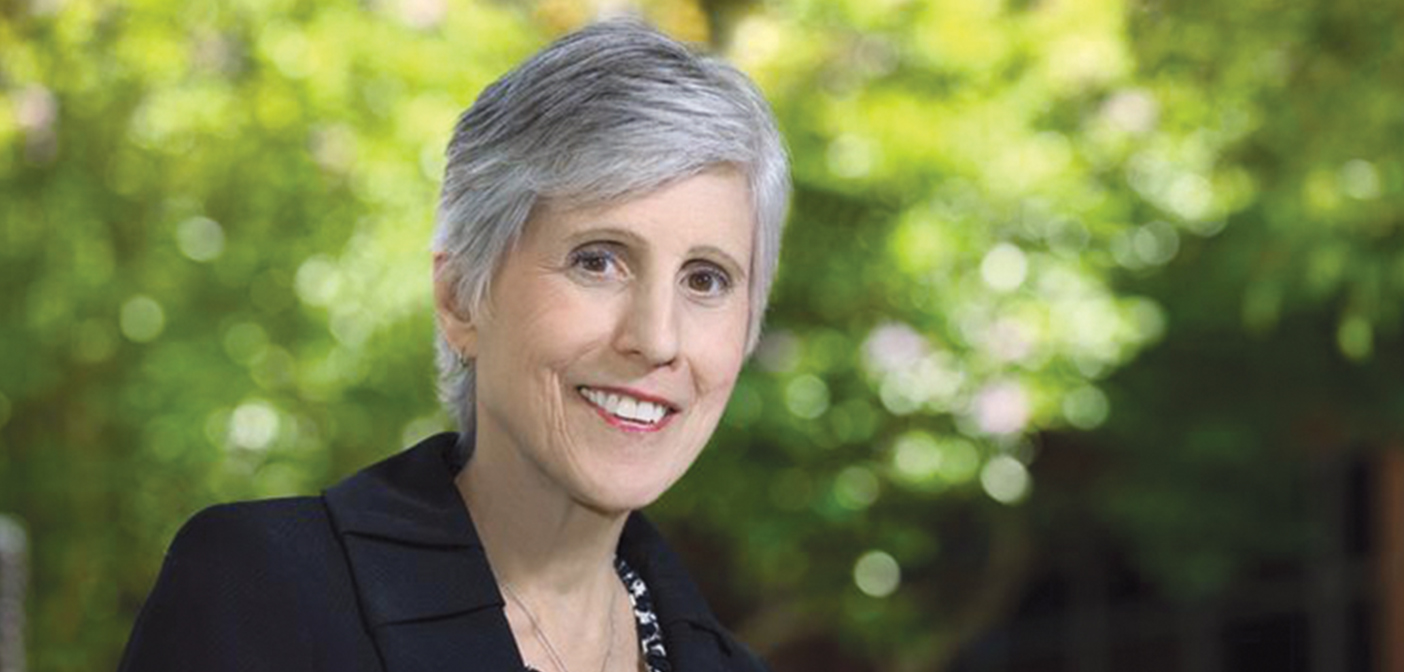By Stephanie Shapiro
Hospital President Jacky Schultz is, before all else, a nurse
When Jacky Schultz, MSN, RN, became chief operating officer of Suburban Hospital in Bethesda, MD, she continued to wear her nursing badge, prompting a colleague to ask, “Will you be taken seriously if you have that there?”The question offended Schultz, who later became the hospital’s executive vice president. “I’m proud of being a nurse,” she says. “That’s the underpinning of everything I am.”
For Schultz, promoted to president of Suburban in August, her colleague’s question exemplifies “everything that’s wrong” with the outdated perception of nursing as a calling for nurturers, not leaders. Her expertise makes her and other nurses all the more qualified to lead, Schultz says. “We can be credible clinicians and credible business people. We understand how the delivery of care works.”Nurses have another advantage as leaders, Schultz says. They are natural collaborators accustomed to making decisions in concert with their peers. The benchmark for nursing is “how you perform as a member or leader of a team,” she says.“I’m proud of being a nurse. That’s the underpinning of everything I am.”
— Jacky Schultz, MSN, RNUnder Schultz’s guidance, day-to-day operations at Suburban will reflect to a greater degree the essential role that nursing has always played at the community hospital. “If you think about it, patients come to the hospital for nursing care,” she says. “They receive care from other disciplines, but the reason it has to be done in the hospital really has to do with nursing care.” What’s more, nurses comprise the majority of clinical staff and are increasingly outnumbering physicians who spend much of their time in procedure rooms or the OR. By that measure, “nursing has already gotten to lead,” Schultz says.
Her commitment to grooming Suburban nurses as leaders has already born fruit. In January, LeighAnn Sidone, MSN, RN, was named Suburban’s vice president for nursing/chief nursing officer in January. Prior to that, Sidone served as the hospital’s first director of professional practice and nursing quality, at the urging of Schultz. Sidone praises her mentor, who gave her the autonomy to create a new governance structure that “allows bedside nurses to work on quality and safety initiatives as opposed to someone behind the desk.”
It’s important to “figure out how to make sure that nurses continue to be credible candidates” for positions like Sidone’s, Schultz says. She also wants to see Suburban’s nurses achieve magnet status.
Schultz took the helm of Suburban during a period of major change. The hospital is undergoing a $273 million modernization project, scheduled to be complete by 2019. She also hopes to capitalize on the hospital’s cardiac and stroke programs to draw more patients. “I want Suburban to be the trusted resource for complex patient care,” Schultz says. As part of the Johns Hopkins Health System, the hospital under Schultz’s stewardship is also expected to find innovative ways to spend less without compromising bedside care.
Although Shultz is now far from the bedside, every decision will be made with the fine details of patient and family care foremost in mind. For hospital executives, that’s not a given, she says. Other “hospital presidents might not get into the weeds as much, because it’s not really part of the job. But coming from a clinical background, you’re always thinking about the weeds.”

